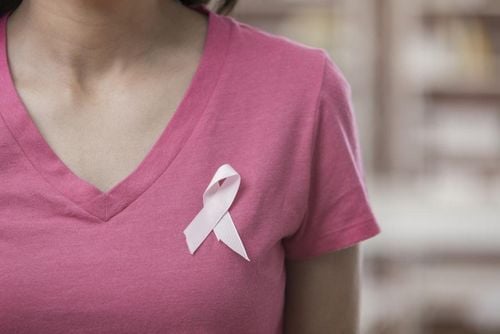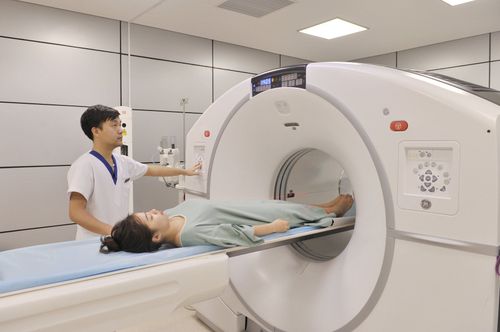This is an automatically translated article.
Screening plays a very important role in early detection and timely treatment of cancer diseases, in order to achieve the highest results and best prognosis for patients. So what does breast cancer screening include?
1. What is breast cancer screening?
Breast cancer is a condition in which abnormal cells appear in breast tissue, they multiply uncontrollably, invade surrounding areas and metastasize. Breast cancer is one of the leading causes of cancer death in women. Breast cancer can also occur in men, but is very rare.Breast cancer screening is the performance of certain examinations, to check for the existence of breast cancer, before breast cancer shows signs and symptoms.
Breast cancer screening includes many different steps, and each woman who goes for screening will be advised by her doctor in detail what to do, when to do it, and explain the benefits and benefits. risk when performing screening, so that the person who needs screening can decide for themselves whether to agree to conduct or not.
Breast cancer screening is not a measure to prevent cancer, but it is very important in detecting breast cancer early, when treatment is easy, brings high results, prognosis good. If the results of breast cancer screening are abnormal, the examiner will be assigned by the doctor to perform breast cancer tests and diagnostic techniques to confirm the diagnosis.
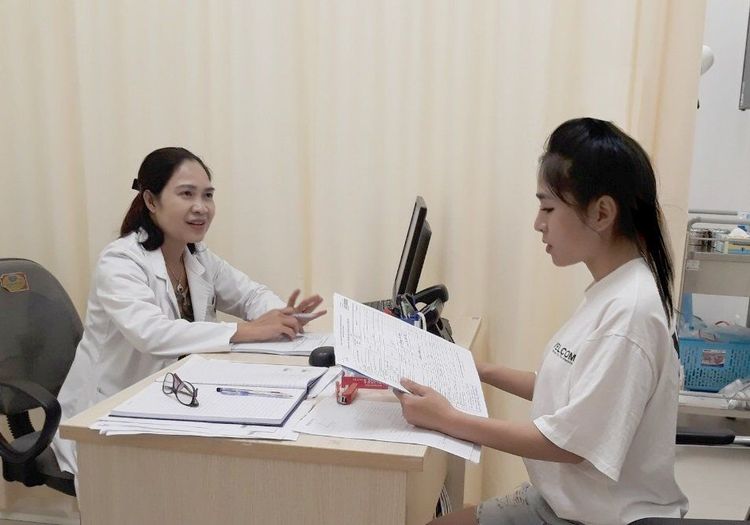
2. Which women should be screened for breast cancer?
The United States Preventive Services Task Force (USPSTF) is an organization made up of doctors and pathologists who research methods to prevent disease. disability, and make recommendations to prevent or detect disease early. The organization recommends that all women between the ages of 50 and 74 and at average risk for breast cancer should have a mammogram every 2 years.Women between the ages of 40 and 49 should consult with their doctor about when to have a mammogram and how long it takes to have a mammogram, and also weigh the benefits and risks of having a mammogram. Screening to decide when to start having mammograms before age 50.
Trắc nghiệm: Những lầm tưởng và sự thật về ung thư vú
Ung thư vú có tỷ lệ tử vong cao nhất ở nữ giới khiến họ rất lo sợ bản thân mắc phải căn bệnh này. Tuy nhiên, không ít chị em có những hiểu biết thái quá về ung thư vú. Thử sức cùng bài trắc nghiệm sau sẽ giúp bạn loại bỏ được những nghi ngờ không đúng về căn bệnh này.
Bài dịch từ: webmd.com
3. What does breast cancer screening include?
Breast cancer screening involves different tests and techniques, including:
3.1. Mammography Mammography is essentially performing an X-ray of the breast. Mammography is the best way to detect breast cancer early, before the cancer shows signs or symptoms, for easier treatment and better outcomes.
Mammography with reasonable frequency has the potential to lower the risk of dying from breast cancer, and is by far the best breast cancer detection method for most women.
However, mammography is not without certain limitations, for women with dense breast tissue, detecting cancer on mammogram results will be difficult.

Several factors affect the ability of mammography to detect cancer:
Age and weight of the patient. The size of the tumor, the type of tumor. The location where the tumor forms in the breast. Sensitivity of breast tissue to hormones. Thickness of breast tissue. When to perform mammograms during the menstrual cycle. Quality mammography results. The doctor's ability to read mammogram results. 3.2. Magnetic resonance imaging of the breast Magnetic resonance imaging of the breast is done with mammography to screen for breast cancer in high-risk women. Magnetic resonance imaging of the breast is not performed on women at average risk, because the results of a mammogram can appear abnormal even in the absence of cancer at all.
High risk factors for breast cancer include:
Genetic changes, such as mutations in the BRCA1 or BRCA2 genes. Family history of breast cancer. Certain genetic disorders, such as Li-Fraumeni syndrome or Cowden syndrome. 3.3. Clinical breast examination A clinical breast exam is a routine examination performed by a physician to detect abnormal masses and other changes in a patient's breast.
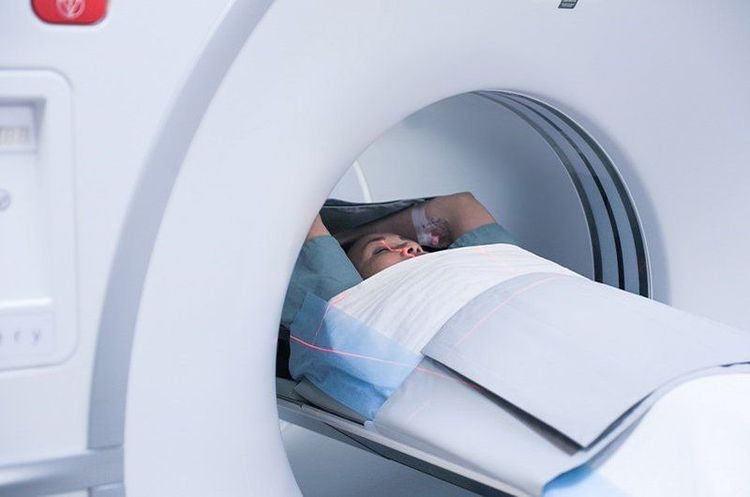
3.4. No one can know their own breasts better than themselves, so when breasts appear abnormal in appearance or feel, such as an abnormal mass, pain, or change in size, ... is completely self-detectable. When abnormalities appear, see your doctor as soon as possible. Clinical breast exams and breast self-exams have not been shown to lower the risk of dying from breast cancer.
4. Benefits and risks of breast cancer screening
Each type of screening has certain benefits and risks, so does breast cancer screening, and people who want to be screened will be thoroughly consulted by a doctor so that they can make an informed decision. performed or not.
4.1. Benefits Breast cancer screening helps to detect breast cancer early, at a time when treatment is easy and convenient, so that it is easy to achieve high results and bring good prognosis.
4.2. Risks Some of the possible risks of breast cancer screening include:
False positive results: False positives first put the screener into anxiety, then the person Screening will be indicated with additional diagnostic tests and techniques, which can be costly and time consuming (in addition to the risks of those techniques). False-negative results: Mammograms may not detect cancer, leading to the benefit of breast cancer screening.
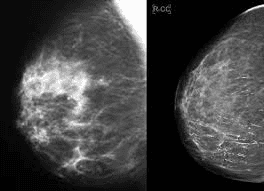
Exposure to radiation: Although mammography is essentially an X-ray, the dose used during the scan is small, so the screener is only at risk of radiation exposure if the scan is performed. repeat. At Vinmec International General Hospital, there is a Breast Cancer Screening Package, which helps customers screen and detect breast cancer early even when there are no symptoms. When registering for the Breast Cancer Screening Package, customers will receive:
Examination and consultation with an oncologist. Breast cancer screening by bilateral breast ultrasound and mammogram. Officially put into operation on January 7, 2012, Vinmec has become a prestigious address in breast cancer screening with:
Team of highly qualified and experienced doctors. Comprehensive professional cooperation with domestic and international hospitals: Singapore, Japan, USA, .. Comprehensive treatment and care, multi-specialty coordination towards individualizing each patient. Having a full range of specialized facilities for diagnosis and staging before treatment: Endoscopy, CT scan, PET-CT scan, MRI, histopathological diagnosis, gene-cell testing, .. There are full range of main cancer treatment methods: surgery, radiation therapy, chemotherapy, stem cell transplant... To register for examination and treatment at Vinmec International General Hospital, you have You can contact Vinmec Health System nationwide, or register online HERE.
References: cdc.gov and cancer.gov







